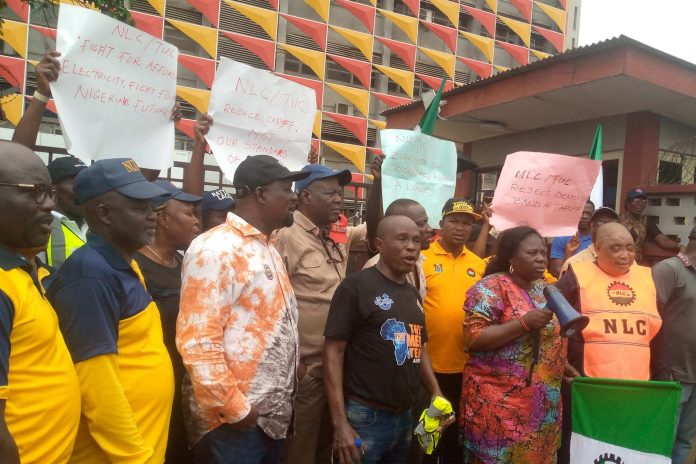Next week, the Federal Government plans to convene a crucial meeting to address the demands made by organized labour regarding the recent hike in electricity tariffs and the removal of power subsidies.
The announcement follows disruptive protests staged by labour unions at the Federal Ministry of Power and the Nigeria Electricity Regulatory Commission (NERC) offices in Abuja.
Labour unions have threatened indefinite protests unless the government reverses the tariff hike, expressing dissatisfaction with the decision to raise electricity tariffs and eliminate subsidies. The protests have disrupted operations not only at government offices but also at distribution companies nationwide.
The outcry stems from the NERC’s announcement of a substantial increase in electricity tariffs for Band A customers, representing a 240% surge from the previous rate. This adjustment, affecting approximately 15% of total power consumers, was part of the government’s move to remove subsidies and save an estimated N1.5 trillion.
Organized labour, represented by the Nigeria Labour Congress (NLC) and the Trade Union Congress of Nigeria (TUC), had given the NERC a deadline to reverse the tariff hike, threatening labour action if their demands were not met. The Ministry of Power has acknowledged labour’s concerns and pledged to initiate comprehensive dialogue to address them.
Despite assurances from government officials, including the promise of a stakeholder meeting next week, labour unions remain resolute in their stance. They have issued a one-week ultimatum for the tariff hike reversal and warned of further action if their demands are not met.
During the protests, labour leaders criticized the tariff hike as burdensome and called for its immediate reversal to alleviate the economic hardships faced by Nigerians. The unions’ demands have resonated across various states, leading to protests and disruptions at electricity distribution company offices nationwide.
While government representatives have pledged to review the tariff hike, labour unions remain skeptical and demand concrete actions to address their grievances. The outcome of the upcoming meeting and the government’s response will likely shape future developments regarding electricity tariffs and labour relations in Nigeria.











